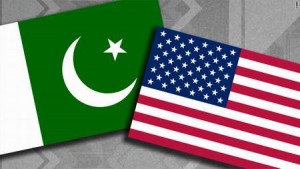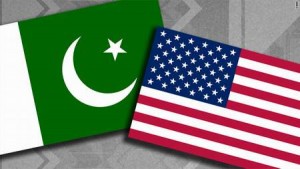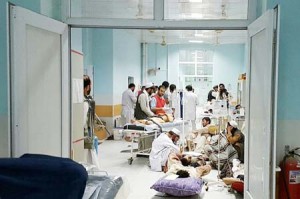Arab News
Muhammad Waqas
 For the past four decades, the F-16 fighter jets have symbolized Pakistan’s relationship with the US. Military cooperation and foreign aid in return for alliance with the US on key geopolitical matters in South Asia added a strategic depth to their ties, and maintained US interest in the region.
For the past four decades, the F-16 fighter jets have symbolized Pakistan’s relationship with the US. Military cooperation and foreign aid in return for alliance with the US on key geopolitical matters in South Asia added a strategic depth to their ties, and maintained US interest in the region.
Good times in their so-called strategic relationship were marked with continued US financial and military assistance, including the offer for sale of more F-16’s. When the relations hit a low ebb, events similar to the present-day situation occurred — constant censure of Pakistan government by US Congress, proposals to block military and financial assistance, and calls for Pakistan to do more in the fight against terrorism.
Recently, there seems to be a growing feeling that the US interest in Pakistan is dwindling. A case in point is the refusal of US to sell eight F-16 fighter jets to Pakistan using the foreign military financing (FMF) funds. While Pakistan insists that the F-16’s are important in its fight against terror, the US Congress has blocked the sale on grounds that these advanced weapons are more likely to be used against India.
It is worth recalling that the Indian government had expressed its “displeasure” over the intentions of US to sell these fighter jets to Pakistan based on the rationale of building its military capacity to fight terrorism. India has routinely accused Pakistan of being reluctant in taking action against domestic terrorist groups that pose a security risk to its neighbors.
Similar thoughts were echoed by the US Congress when debating proposed US aid of up to $742 million for Pakistan. Questioning Pakistan’s policies and priorities, the lawmakers asserted that the country was “a direct contributor to the Taliban success” and the US government should urge it to become “a better regional partner with Afghanistan.” Further, the Congress demanded that Pakistan take action against all terrorist groups without any discrimination so that its neighbors may not feel threatened.
A possible explanation for change in the US attitude toward Pakistan could be the issue of Dr. Afridi, who assisted the US in hunting down Osama Bin Laden and is serving a long prison sentence in Pakistan. By blocking military aid, the US government is pressuring Pakistan for his release. Moreover, as the Taliban have now backed off from peace talks, Pakistan’s usefulness in the Afghan endgame seems limited. Even though Pakistan has made great progress in its counterterrorism efforts, the Afghan government sees it as part of the problem and is more inclined to bend toward India in future.
Despite these recent setbacks, the US and Pakistan need to reincarnate their relationship by looking beyond the war on terrorism and security paradigm. In the backdrop of China’s global rise to power and its mega investments in Pakistan, the country will always be relevant to geostrategic interests of the US in the region. Pakistan is at the crossroads in its war against extremism, democratization of political process and an economic turnaround.
It is far from a failed state and has enormous development potential based on strategic endowments and human resources. The US should act as a strategic partner to help the country harness this potential by extending its support in areas of trade and investment, education and broader economic development.




